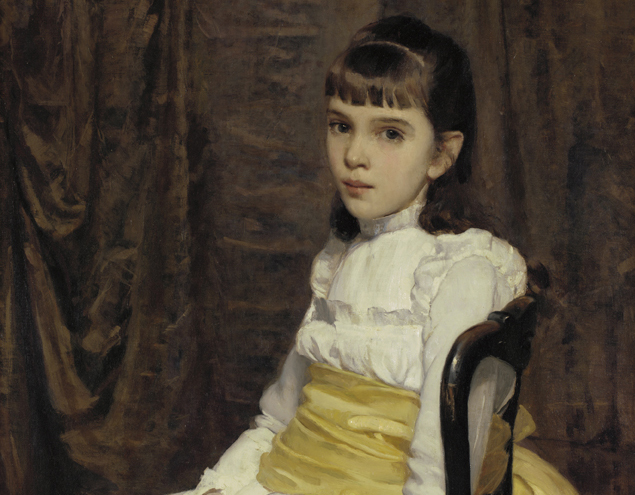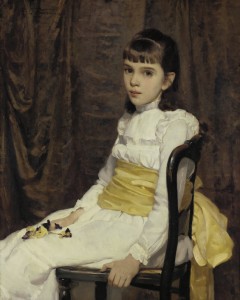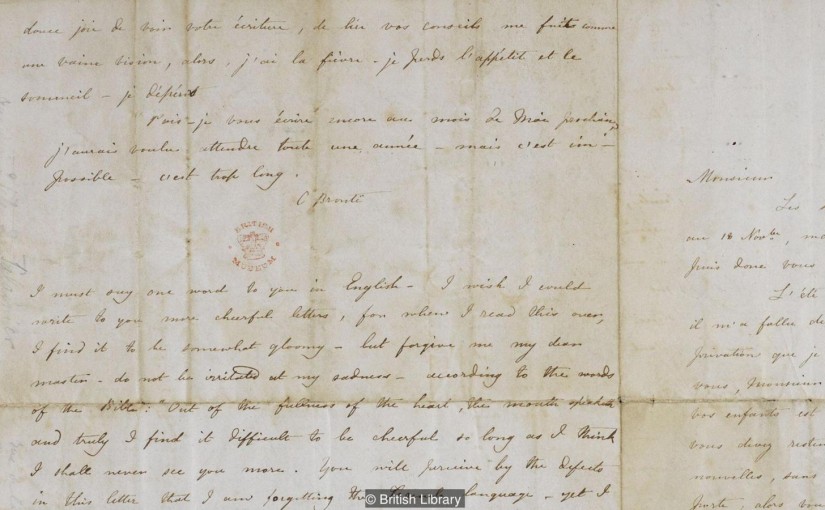Utdrag ur en artikel från BBC:
It’s not the words alone that speak to us. “Some of the physical items have a story to tell on their own,” Clarke tells BBC Culture. “There’s an item that was torn up and then sewn together, or just the addition of a doodle, or you can see that some documents have been through the wars.” One of the most fragile letters in the collection was ripped up and thrown away by its recipient. While studying languages at a boarding school in Brussels run by Professor Constantin Héger and his wife, Charlotte Brontë became infatuated with her teacher. After returning to England, she wrote several letters to him – but he discarded them all. “Incredibly four of her letters have survived,” writes Clarke. “Curiously, it is thanks to his wife – who retrieved them from the waste paper basket and sewed them back together – that we are privy to their content today.”
As Clarke points out, Brontë’s stitched-together missives offer us a glimpse into the mind of the novelist. “The letters are deeply poignant and reveal the extent of Charlotte’s passionate feelings for the professor, her desire to see him, her despair at his silence and ultimately her resigned desolation and sense of rejection – emotions that she would later pour into Jane Eyre and Villette.”
Extract:
“I wish I would write to you more cheerful letters, for when I read this over, I find it to be somewhat gloomy – but forgive me my dear master – do not be irritated at my sadness – according to the words of the Bible: ‘Out of the fullness of the heart, the mouth speaketh’ and truly I find it difficult to be cheerful so long as I think I shall never see you more.”


